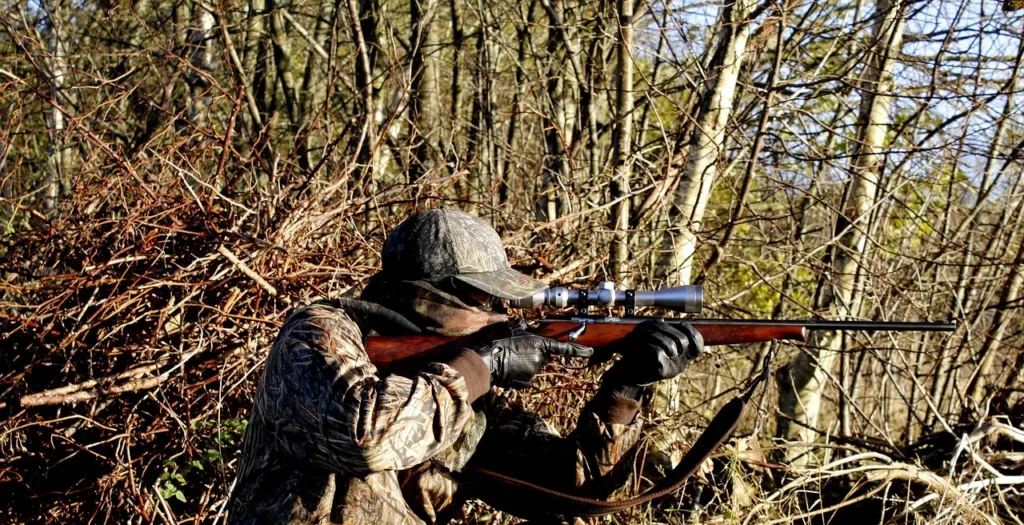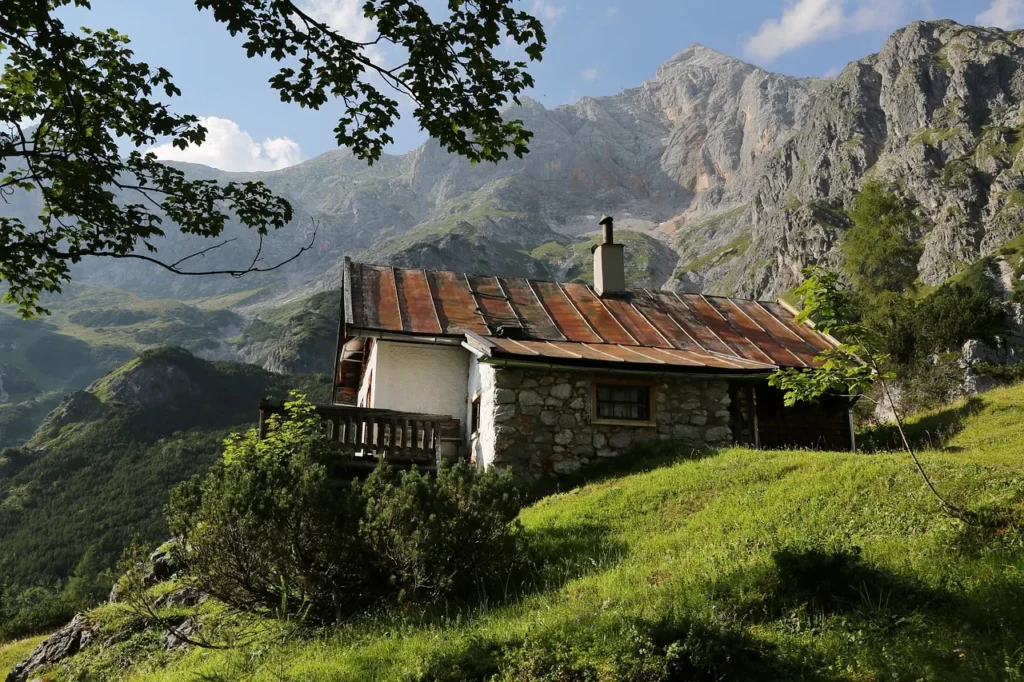The Hunting Lifestyle: More Than Just a Harvest
For many, the word “hunting” conjures images of camouflage, firearms, and the pursuit of game. While these elements are certainly part of it, the hunting lifestyle encompasses a far richer and more complex tapestry of traditions, values, and practices that extend far beyond the moment of a successful harvest. It’s a deep connection to nature, a commitment to conservation, a source of sustenance, and a way of life that shapes individuals and communities.
What is the Hunting Lifestyle? A Holistic Outdoor Pursuit

The hunting lifestyle encompasses much more than the act of pursuing and harvesting wild game; it represents a comprehensive way of life deeply intertwined with nature, conservation, and personal values. At its core, it’s about a profound connection to the outdoors, fostering an intimate understanding of ecosystems, wildlife behavior, and the rhythms of the natural world.
This lifestyle often involves rigorous physical activity, developing patience, resilience, and sharpened observational skills. Crucially, it is underpinned by a strong commitment to wildlife conservation, with hunters being significant funders and participants in efforts to preserve habitats and manage animal populations ethically and sustainably.
Beyond the field, the hunting lifestyle extends to traditions of processing and preparing wild game as a source of lean, organic food, fostering self-sufficiency. It also builds strong communities and family bonds, with knowledge, skills, and ethical principles often passed down through generations, creating a rich heritage centered on respect for wildlife and the land.
A Return to Roots: Connection with Nature and Self
At its core, the hunting lifestyle is about reconnecting with the natural world in a profound way. In an increasingly digital and urbanized society, hunting offers an escape from the daily grind and an immersion into wild landscapes.
- Understanding Ecosystems: Hunters spend countless hours in forests, fields, mountains, and wetlands, observing wildlife patterns, understanding their habitats, and learning the intricate balance of ecosystems. This direct engagement fosters a deep appreciation and respect for nature that is often unmatched.
- Patience and Presence: Hunting demands immense patience. Hours of waiting, listening, and observing sharpen the senses and cultivate a heightened awareness of one’s surroundings. This enforced stillness provides a unique opportunity for introspection and a sense of presence that is rare in modern life.
- Physical and Mental Challenge: From scouting rugged terrain and tracking game to enduring harsh weather conditions, hunting is a physically demanding activity that promotes fitness and resilience. The mental challenge of strategic planning, problem-solving, and managing emotions under pressure also builds character and discipline.
The Pillars of the Hunting Lifestyle: Conservation and Ethics
Contrary to popular misconceptions, modern hunting is inextricably linked with wildlife management and conservation. Hunters are, arguably, among the most dedicated conservationists, playing a vital role in funding and executing efforts to protect wildlife and their habitats.
- Funding Conservation: A significant portion of wildlife conservation in North America, for instance, is funded by hunters through license fees, excise taxes on firearms and ammunition (Pittman-Robertson Act), and voluntary contributions to organizations like Ducks Unlimited, Pheasants Forever, and the Rocky Mountain Elk Foundation. This “user pays, beneficiary benefits” model has directly led to the recovery of numerous species, from wild turkeys to elk.
- Population Control: Ethical hunting serves as a crucial tool for managing wildlife populations, preventing overpopulation that can lead to habitat degradation, disease outbreaks, and starvation within animal herds. Biologists and wildlife managers use hunting quotas to maintain healthy animal populations in balance with available resources.
- Habitat Preservation: Hunters actively participate in habitat restoration projects, including planting food plots, restoring wetlands, and improving forest health, understanding that healthy ecosystems are essential for healthy game populations.
- Fair Chase: The concept of “fair chase” is a fundamental ethical principle in hunting. It dictates that hunters do not take unfair advantage of game animals. This includes avoiding the use of artificial lights, electronic calls (for certain species), vehicles, or pursuing animals in fenced enclosures. It emphasizes respecting the animal and the challenge of the hunt.
Sustenance and Self-Sufficiency: Beyond the Grocery Store
For many adherents of the hunting lifestyle, wild game meat is a prized source of organic, lean, and ethically sourced protein.
- Sustainable Food Source: Harvesting wild game allows individuals to directly connect with their food source, understanding where it comes from and minimizing their reliance on industrial farming practices. It’s often viewed as the ultimate organic, free-range meat.
- Field to Table: The process of field dressing, butchering, and preparing wild game is an integral part of the experience, fostering skills in food preservation and culinary creativity. Sharing wild game with family and friends becomes a cherished tradition.
- Reduced Carbon Footprint: Sourcing meat from local wild populations can sometimes have a smaller environmental footprint compared to industrially farmed alternatives, though this depends on various factors.
Early Humans and Their Hunting Lifestyle
Early humans lived a nomadic lifestyle, heavily relying on hunting and gathering for survival. They used simple tools made from stone, wood, and bone to hunt animals for food, clothing, and shelter. Hunting was often a group activity, requiring cooperation, strategy, and communication.
Early humans tracked animals across long distances and learned their behaviors to increase hunting success. In addition to hunting large game like mammoths or deer, they also trapped smaller animals and gathered edible plants, fruits, and nuts. This lifestyle played a crucial role in shaping human evolution, encouraging the development of social structures, language, and tool-making skills.
Hunting is often a deeply rooted tradition, passed down through generations, fostering strong family bonds and community ties.
- Family Heritage: For many, hunting begins with a parent, grandparent, or mentor, creating lasting memories and instilling values of respect, responsibility, and perseverance. It’s a way to connect with ancestral practices and create new family rituals.
- Community Bonds: Hunting camps, clubs, and informal groups form tight-knit communities where experiences are shared, stories are told, and friendships are forged over a shared passion for the outdoors and conservation.
- Mentorship: Experienced hunters often take new hunters, especially youth, under their wing, teaching them not only hunting techniques but also safety, ethics, and respect for nature. This mentorship ensures the perpetuation of responsible hunting practices.
Challenges and the Future of Hunting

The hunting lifestyle faces various challenges, including declining hunter numbers in some regions, urbanization leading to habitat loss, and ongoing debates surrounding hunting practices and hunting ethics.
- Public Perception: Misconceptions about hunting, often fueled by sensationalized media or lack of understanding, pose a challenge. Education and transparent communication about conservation contributions and ethical practices are vital.
- Access to Land: Increasing urbanization and private land ownership limit access to hunting grounds, particularly public lands, making it harder for new generations to take up the sport.
- Recruitment and Retention: Efforts are continuously being made by wildlife agencies and organizations to recruit new hunters (R3 initiatives – Recruitment, Retention, Reactivation) and ensure the future of hunting as a conservation tool.
Hunting Lifestyle Brands: Curating the Outdoor Experience
The hunting lifestyle extends beyond the field into a dedicated consumer culture supported by many brands that cater to every aspect of a hunter’s needs and preferences. These brands range from established giants in firearms, archery, and optics to specialized companies focusing on technical apparel, innovative gear, and outdoor sustenance. Companies like Browning, Remington, Winchester, and Savage Arms dominate the firearms market, while Mathews, Hoyt, and TenPoint lead in archery.
Apparel brands such as Sitka Gear, Kuiu, and Kryptek are renowned for their advanced camouflage patterns and performance fabrics, designed to withstand extreme outdoor conditions. Optics providers like Leupold, Vortex, and Zeiss offer high-precision binoculars, scopes, and rangefinders crucial for ethical hunting. Beyond the core equipment, there are also brands dedicated to scent control (e.g., ScentLok), trail cameras (e.g., Moultrie), and even unique food preparation tools for wild game. These brands not only supply essential gear but also often embody the values of conservation, tradition, and respect for nature, becoming integral parts of a hunter’s identity and connection to the outdoor pursuit.
Hunting Lifestyle Dating Sites: Finding Your Outdoor Match
For individuals deeply immersed in the hunting lifestyle, finding a compatible partner who shares their passion for the outdoors, conservation, and ethical harvesting can be a unique challenge on conventional dating platforms. Recognizing this, a niche market of hunting lifestyle dating sites has emerged to connect like-minded singles.
Platforms like FarmersOnly (which caters broadly to rural and outdoor lifestyles), HuntSingles, and specific groups on general dating apps or social media forums allow hunters to showcase their interests upfront, ensuring potential matches understand and appreciate their commitment to hunting. These sites provide a space where individuals can connect over shared values, discuss hunting seasons, gear, conservation efforts, and the field-to-table experience, making it easier to forge relationships built on mutual understanding and a shared love for the wild.
Hunting Lifestyle Dating: Connecting Through Shared Outdoor Passions
For individuals deeply committed to the hunting lifestyle, finding a romantic partner who truly understands and appreciates their passion for the outdoors can be a significant aspect of dating. This isn’t just about enjoying nature; it often involves a dedication to wildlife conservation, sustainable harvesting, early mornings in the field, and a unique set of values. Mainstream dating apps, while broad, may not effectively highlight these core interests, leading to missed connections or misunderstandings.
Consequently, many hunters seek out specialized avenues for hunting lifestyle dating, including niche dating websites designed specifically for outdoor enthusiasts, or dedicated groups and forums within larger social media platforms. These spaces allow individuals to connect based on shared experiences, discuss hunting seasons, gear, conservation ethics, and the “field to table” philosophy, ultimately fostering relationships built on mutual respect for the wild and the pursuit of its offerings.
Conclusion: A Lifestyle of Purpose and Connection
The hunting lifestyle is far more than just a recreational activity; it’s a profound engagement with the natural world, a powerful force for wildlife conservation, a source of sustainable food, and a keeper of rich traditions. It embodies a commitment to ethical conduct, a deep respect for animals, and an appreciation for the wild places that sustain us all. For those who embrace it, hunting offers a unique path to self-reliance, connection, and purpose, making it a vital and enduring part of the human experience.